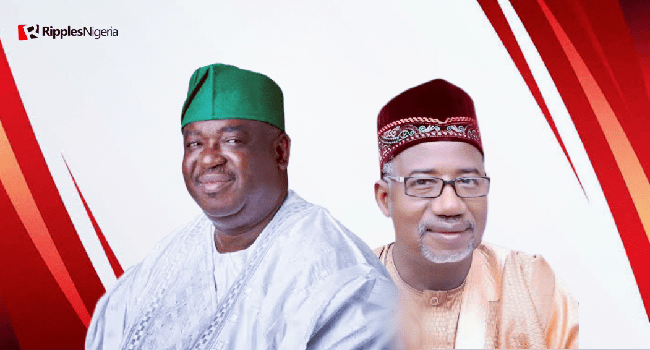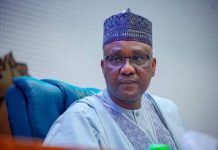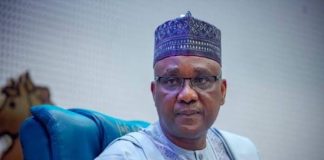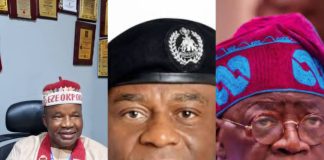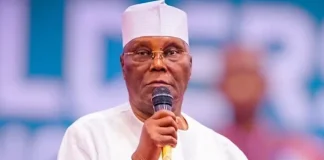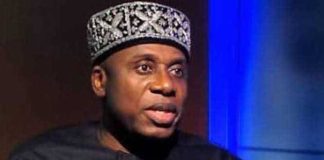🌿 Ruzu Non-Alcoholic Herbal Bitters
Ruzu Non-Alcoholic Herbal Bitters is a natural health supplement specially formulated to:
- ✅ Promote general wellness
- ✅ Detoxify the body
- ✅ Support the treatment of various ailments
Made from a powerful blend of 100% organic and medicinal herbs, Ruzu is completely alcohol-free, making it ideal for:
- 👪 All age groups
- 🌱 Health-conscious individuals
- 🌿 Anyone seeking non-alcoholic herbal remedies
Whether you're looking to boost your vitality, cleanse your system, or support healing the natural way, Ruzu Bitters offers a trusted herbal solution.
Our Model
Naomisophyblog’s Ranking Nigerian Governors, a monthly publication dedicated to evaluating the performance of Nigerian governors since August 2019. Makes a return again for the month of August. Our mission is to provide an in-depth assessment of the policy decisions, actions, and impacts of state governors on residents of their states, highlighting both the positive and negative consequences.
Initially, we used a ranking system to identify the Top 5 and Bottom 5 governors each month. However, due to the declining governance standards across the nation, we have refined our approach to focus on significant achievements or failures of governors and provide a comprehensive assessment of governance quality.
We acknowledge the challenges governors face, including limited resources and increasing financial obligations. Nevertheless, we believe that effective leadership can harness Nigeria’s rich natural and human resources to drive development.
A Look Back
In our previous issue, we examined the #EndBadGovernance protests that swept the country and the role of state governors in the current economic challenges that led to the protests. We criticized the uncomplimentary roles played by state administrations in not ensuring that the Federal Government’s initiatives were matched to alleviate the prevailing hunger in the country. We also highlighted steps that state administrations could take to avoid further suffering, and assuage the feelings of the people, especially the youths who championed the protests.
In Focus
In this current publication, we shine the light on the statements made by Bauchi and Plateau state governors, Bala Mohammed and Caleb Muftwang, during the protests, and what they reveal about Nigeria’s state chief executives and their poor response to the current hunger and economic challenges facing the country.
We recall that during the #EndBadGovernance protests, Bauchi State Governor, Bala Mohammed, was reported to have said that the current hunger in the country was a result of the economic policies of President Bola Tinubu’s administration.
Also, Governor Muftwang of Plateau State said that though states had increased revenue from the FAAC, the value was lesser because of the depreciation of the Naira.
These statements are not only misleading but also demonstrates a lack of understanding of the role of state governors in addressing the economic challenges facing their states.
We dare say that as leaders, state governors have a responsibility to take proactive steps in making life and living more meaningful for citizens and residents of their states. Instead of blaming the federal government, governors like Bala Mohammed and Caleb Muftwang should focus on implementing policies and programmes that will stimulate economic growth and development in their states.
READ ALSO:Ranking Nigerian Governors; July, 2024: #EndBadGovernance Protests, a damning verdict on state governance
For instance, Governor Mohammed could have explored ways to improve agriculture in Bauchi State, which is known for its rich soil and favourable climate. He could have also invested in education and skills training to equip the youth with the necessary skills to compete in the job market.
On the value of the increased allocation from FAAC, Governor Muftwang’s statement highlights the laziness and lack of creativity of Nigerian governors in exploring avenues to increase their revenue generation.
Instead of waiting every month for handouts from the Federation Account Allocation Committee (FAAC), governors like Muftwang should be proactive in identifying and exploiting alternative sources of revenue for their states.
For example, Plateau State is known for its rich mineral resources, including tin, columbite, and gold, aside rich tourism attractions, including a great climatic condition that can attract heavy tourist traffic to the state. Governor Muftwang could have explored ways to tap into these resources to generate revenue for the state.
We are of the opinion that the statements by Governors Mohammed and Muftwang are vivid reflections of the mindset of most state governors in Nigeria, and that this mindset has kept Nigerian states almost bankrupt and overly dependent on allocations coming from the centre.
We contend that except and until state governors wean their states from over-dependence on federal allocation and start harnessing the rich natural and human resources abundant in all the states in the country, issues of hunger, economic challenges and youth unemployment will continue to be recurring issues in the country.
Recommendations:
To overcome the current challenges, the following steps must be taken:
1. State governors should focus on implementing policies and programmes that will stimulate economic growth and development in their states.
2. Governors should be proactive in identifying and exploiting alternative sources of revenue for their states.
3. The federal government should provide support and incentives for state governors who are proactive in addressing the economic challenges facing their states.
4. Governors should invest in education and skills training to equip the youth with the necessary skills to compete in the job market.
5. Governors should explore ways to improve agriculture and tap into the rich mineral resources in their states to generate revenue.
We reckon that following these recommendations, Nigerian governors can take proactive steps in addressing the economic challenges facing their states and make life and living more meaningful for citizens and residents.
The post Ranking Nigerian Governors; August, 2024: ‘Feeding bottle federalism’ back in focus as Muftwang, Mohammed shirk responsibility appeared first on Latest Nigeria News | Top Stories from Naomisophyblog.

